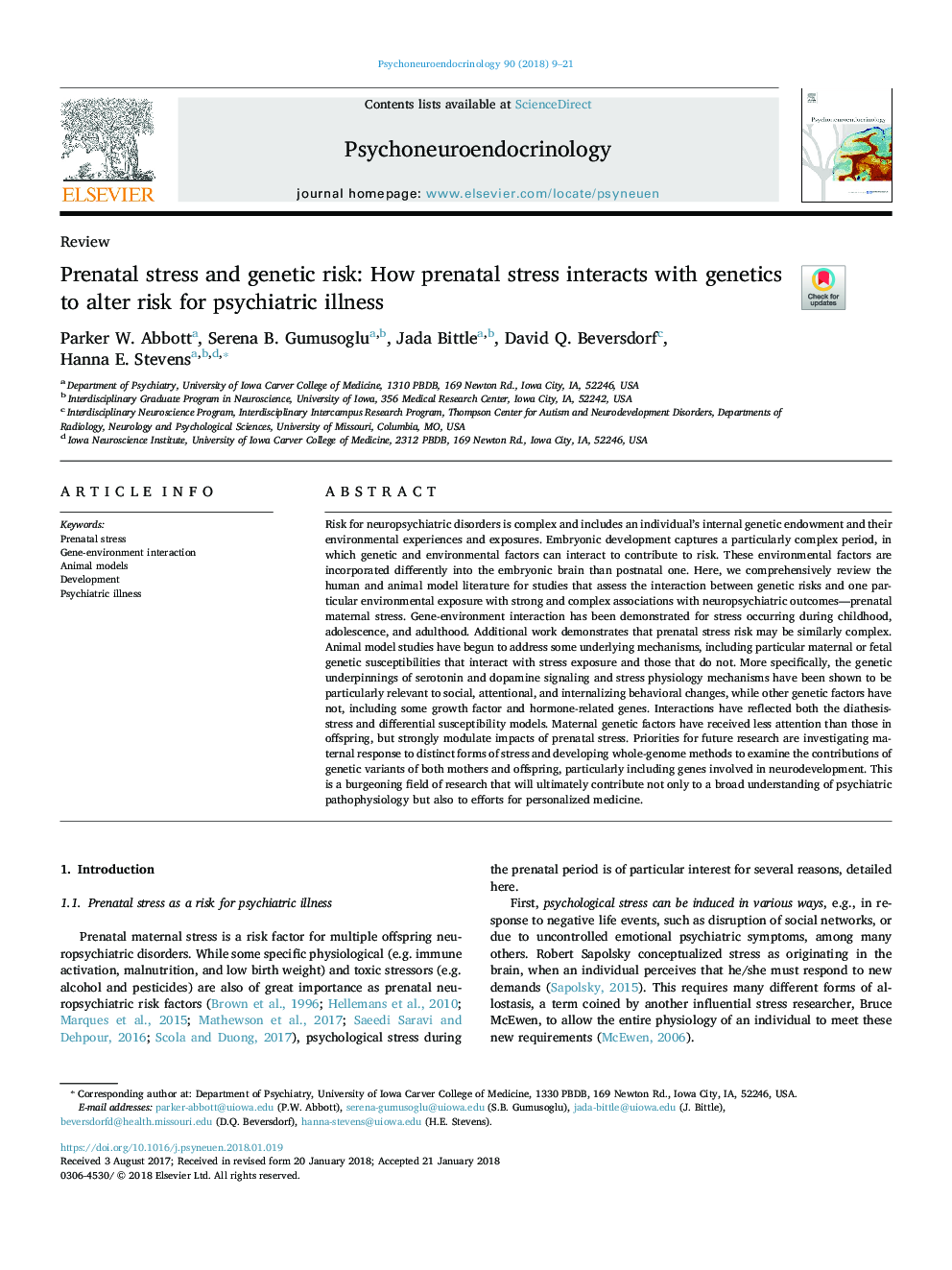| Article ID | Journal | Published Year | Pages | File Type |
|---|---|---|---|---|
| 6817699 | Psychoneuroendocrinology | 2018 | 13 Pages |
Abstract
Risk for neuropsychiatric disorders is complex and includes an individual's internal genetic endowment and their environmental experiences and exposures. Embryonic development captures a particularly complex period, in which genetic and environmental factors can interact to contribute to risk. These environmental factors are incorporated differently into the embryonic brain than postnatal one. Here, we comprehensively review the human and animal model literature for studies that assess the interaction between genetic risks and one particular environmental exposure with strong and complex associations with neuropsychiatric outcomes-prenatal maternal stress. Gene-environment interaction has been demonstrated for stress occurring during childhood, adolescence, and adulthood. Additional work demonstrates that prenatal stress risk may be similarly complex. Animal model studies have begun to address some underlying mechanisms, including particular maternal or fetal genetic susceptibilities that interact with stress exposure and those that do not. More specifically, the genetic underpinnings of serotonin and dopamine signaling and stress physiology mechanisms have been shown to be particularly relevant to social, attentional, and internalizing behavioral changes, while other genetic factors have not, including some growth factor and hormone-related genes. Interactions have reflected both the diathesis-stress and differential susceptibility models. Maternal genetic factors have received less attention than those in offspring, but strongly modulate impacts of prenatal stress. Priorities for future research are investigating maternal response to distinct forms of stress and developing whole-genome methods to examine the contributions of genetic variants of both mothers and offspring, particularly including genes involved in neurodevelopment. This is a burgeoning field of research that will ultimately contribute not only to a broad understanding of psychiatric pathophysiology but also to efforts for personalized medicine.
Related Topics
Life Sciences
Biochemistry, Genetics and Molecular Biology
Endocrinology
Authors
Parker W. Abbott, Serena B. Gumusoglu, Jada Bittle, David Q. Beversdorf, Hanna E. Stevens,
